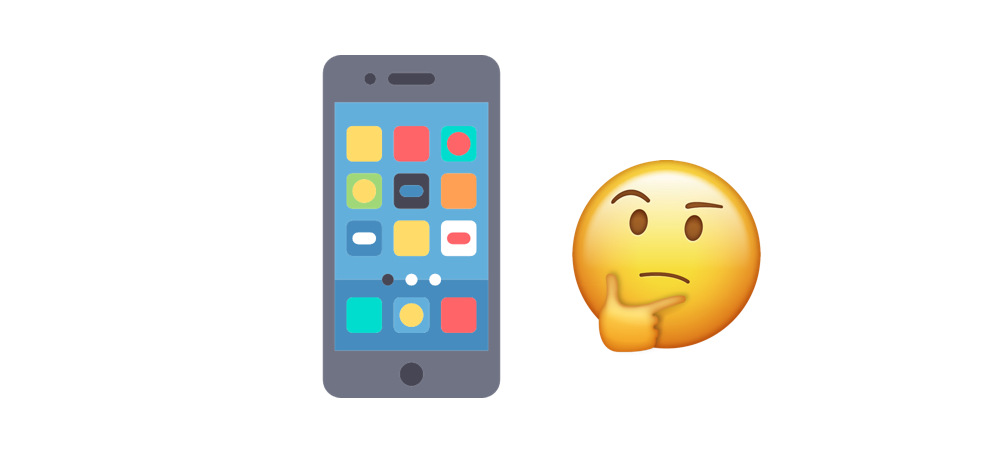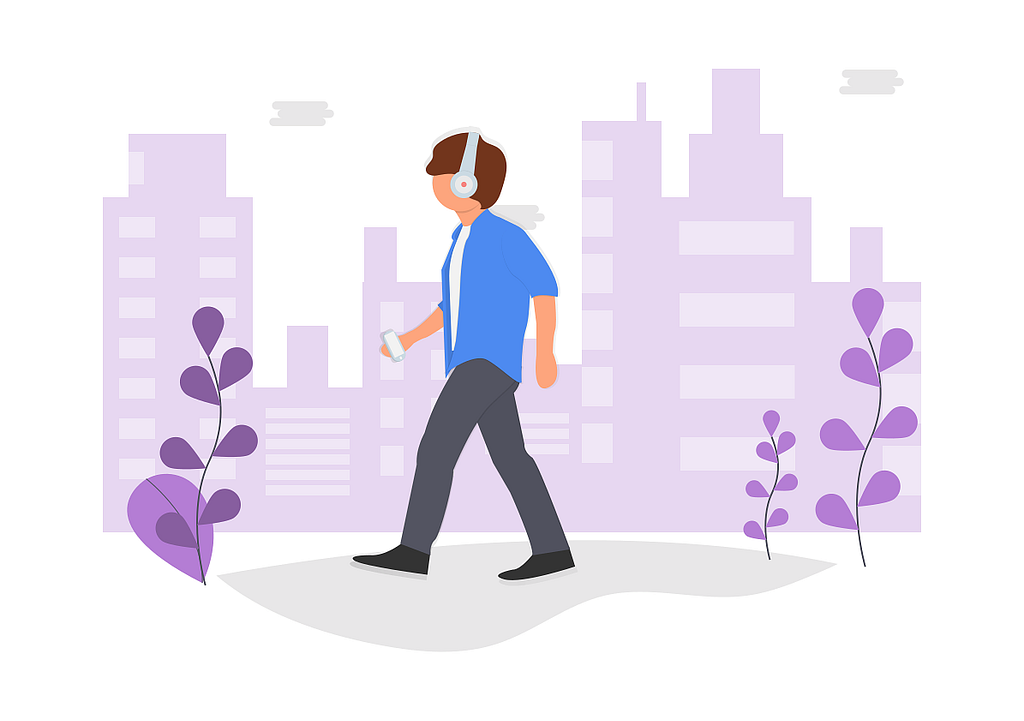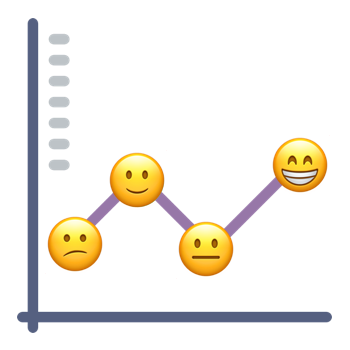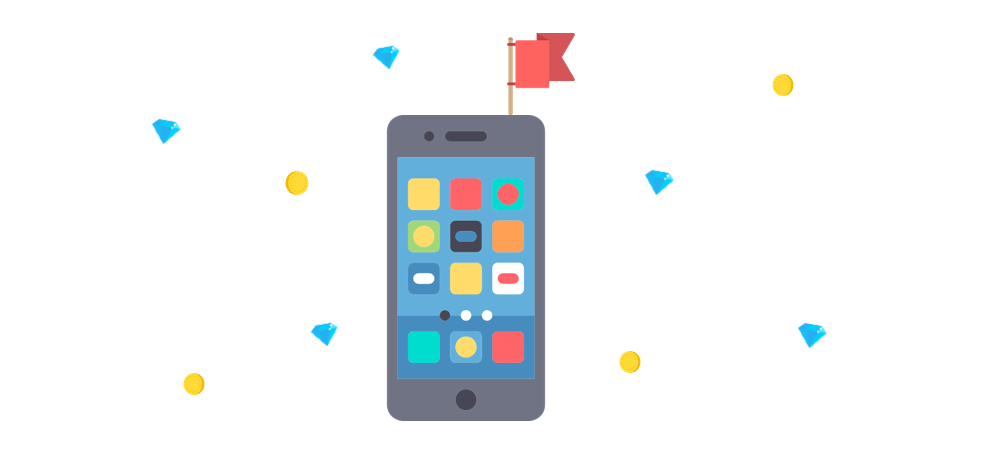Latest news about Bitcoin and all cryptocurrencies. Your daily crypto news habit.

Anxiety is the movie monster taking over our world.
- No one believes the monster exists
- People around you are seemingly oblivious to the problem
- Most of the time, attempts to bring it down end up tragically futile
This isn’t some niche problem. Anxiety and depression affect 40% of the population.
It can take sufferers decades to seek help, and it’s easy to see why. With anxiety comes self-doubt, hopelessness, and fear of stigma. Therapy is not the most accessible or affordable thing either.
This is where apps come in.
Apps are the light at the end of the tunnel for many reasons. They’re cheap, immediately available, and remove the fear of stigma. They also allow for greater privacy and confidentiality, for those worried about discussing their mental health issues in person. You can access help from the comfort of your own home. Basically, they remove the barriers to traditional therapy.
We can already see the impact apps targeting mental health are having. Headspace has taken the meditation world by storm, and Calm was awarded 2017 App of the Year.
There are three types of these apps you’ll find — but there’s one type that has never been created before, and has the potential to truly shake up the mental health app space. I’ll let you know what that is at the end.
Type 1: Meditation apps
Ah, good old meditation apps. This is the category of the mental health app giants. Here you’ll find the likes of Headspace, and calm.com. Headspace teaches you mindfulness through meditation. The animations are awesome and so is the narrator’s accent. Calm also offers guided meditation, music and Sleep Stories.
 Meditation apps are for you if:
Meditation apps are for you if:
- You’re looking to unwind
- You want to develop better focus
- Audio-form content suits you
- You like the thought of Stephen Fry’s voice guiding you through Provence (thanks Calm)
Type 2: CBT apps
Cognitive Behavioral Therapy (CBT) apps are also very popular. CBT focuses on challenging faulty and unhelpful thoughts. If you change these thoughts to be more realistic and positive, your behavior can change to reflect them. There are a lot of these apps out there, some examples including Pacifica and Youper.
CBT apps are for you if:
- You’re ready to take action — CBT works by facing your fears
- You have a lot of negative thoughts — they lead to unrealistic beliefs and fears.
Pretty much anyone can benefit from CBT and it can be used to treat a wide range of mental health problems, including anxiety and depression.
Type 3: Tracker apps
These apps act like journals in which you can track your daily moods and activities. Over time through identifying mood patterns, you can discover when and why you feel a certain way. Such apps include Daylio and Moodnotes.
- Your mood varies a lot and you want to find out why
- You want to track your progress
- You enjoy looking at pretty charts and data
So there are the top three anxiety app types!
But wait, what’s that fourth type you were talking about? Ah, yes…
Type 4: Games
There are many reasons why games are the perfect anxiety-app format. They’re fun, interactive, and motivating. In psychotherapy, it has been shown that those who strive after goals because of the fun and enjoyment of it do better than those who do it because they have to.
People spend hours playing them. Imagine how beneficial it would be if we were as addicted to making progress with our mental health as we are to games?
A lot of apps use gamification to increase engagement and motivate their users, but none that I’ve come across turn the app into an actual game.
Curious about this, I went to gather feedback from anxiety-sufferers. The results were that they wanted the benefits of existing apps, like tracking progress, but they also wanted something more fun, positive and most importantly — actionable.
People want to see clear progress! Belief that someday, somehow your efforts will pay off isn’t enough, especially when your confidence is already low. You need to feel like you’re doing something from day one.
So, I created Merrier.
Merrier helps you overcome anxiety by transforming your worries into a fun game.
Merrier helps you turn your worries into quests. Quests are challenges that you set yourself to overcome. They are like the stepping stones to the wider goal of confidence. An example would be saying hi to a stranger, or giving a presentation.
Earn rewards
You can win items like trophies and coins by completing quests and reaching milestones. If you’re rewarded for facing your fears, you’re more likely to face more fears!
Track your progress
I think we’re all a bit obsessed with charts and maps. There’s something satisfying about scrolling through pretty data.
With Merrier, you can track your progress via your Confidence Chart (which shows your confidence over time), and your Quest Map. Your Quest Map shows all your past quests — they’re a record of your thoughts and experience. Over time, you’ll see your progress and your improved ability in facing your worries!
Supported by research
Merrier uses scientifically backed methods of training your mind into seeking to overcome more and more challenges. You can read all about it here.
 Some screenshots of the app in actionI want to know more…
Some screenshots of the app in actionI want to know more…
There are several ways you can learn more about Merrier.
- Curious about the science? Read all about it here.
- Have more questions? The FAQ can be found here.
- Have even more questions? Awesome, feel free to email us at merrier[at]apptaste[dot]co.
- Download the app here.
At the end of the day, whether you use them as your primary method of recovery or as a supplement to traditional therapy, you can’t go wrong with using an app or two to help you with your mental health.
What we really need from an anxiety app was originally published in Hacker Noon on Medium, where people are continuing the conversation by highlighting and responding to this story.
Disclaimer
The views and opinions expressed in this article are solely those of the authors and do not reflect the views of Bitcoin Insider. Every investment and trading move involves risk - this is especially true for cryptocurrencies given their volatility. We strongly advise our readers to conduct their own research when making a decision.




